On April 26, 2019, the Diplomatic Academy of the Ministry of Foreign Affairs of Russian Federation organized The Fifth International conference “Transformation of International Relations in the XXI Century: Challenges and Prospects”. The scientific event has become a reputed platform where Russian and foreign experts, diplomats and young researches come together to discuss the contemporary state of the international relations and try to predict their future developments.
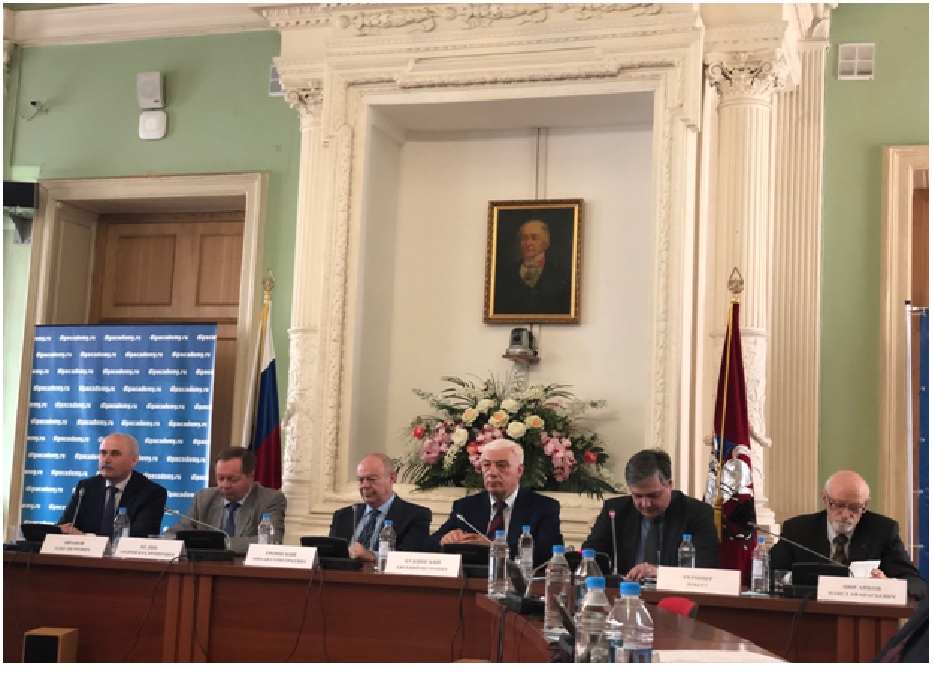
The members of the Plenary section Oleg P. Ivanov, Mikhail G. Troyansky, Andrey V. Kelin, Evgeny P. Buzhinsky, Robert Gerschner, and Pavel A. Tsygankov address participants and quests of the Conference
The work of the conference was continued in the framework of six panels and a round table where more than 100 specialists in the sphere of international relations and international security took part. The conference was held in six panels: International Security and Threats, Modern International Relations: Theory and Practice, Soft Power in World Politics, Strategic Communication and Media, Regional Security in New Political Realities, Foreign Policy of Modern States.
TIR 5 was attended by experts from Austria, Brazil, France, Germany, Great Britain, India, Italy, Kyrgyzstan, Romania, Russia, Serbia, Sweden, Switzerland, Turkey, Ukraine, and USA.
The event was opened by Prof. Oleg P. Ivanov, DSc., the Vice-Rector for Research at the Diplomatic Academy. Following, PhD, Mikhail G. Troyansky, the Acting Rector of the Diplomatic Academy addressed the audience. During the plenary session there were also speeches delivered by Andrey V. Kelin, the Head of the Department of European Cooperation of the Ministry of Foreign Affairs of the Russian Federation;Evgeny P. Buzhinsky, PhD, the Chairman of the Executive Board of the PIR-Center in Moscow, Lieutenant-General (Retired); Robert Gerschner, PhD., the Minister Counselor of the Embassy of the Republic of Austria in the Russian Federation and Prof. Pavel A. Tsygankov, DSc the Professor at the Faculty of Political Science at the Lomonosov Moscow State University.
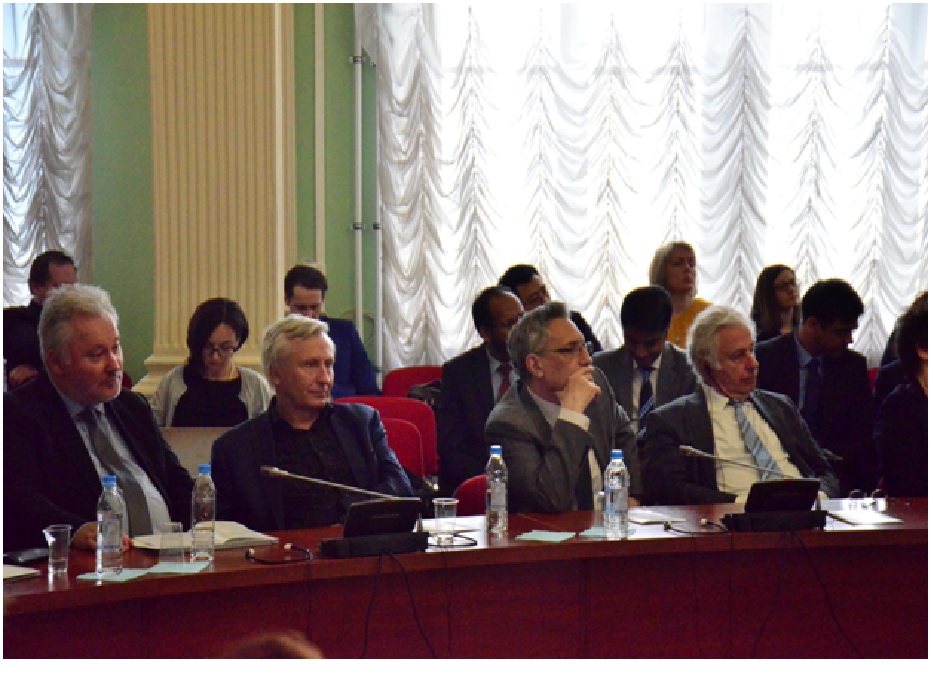
The participants and quests of the Plenary section during the opening speeches
Issues of strategic communication were discussed at the panel “Strategic Communication and Media” held in English in two sessions. The organizers of the Section were the Institute for Contemporary International Studies of the Diplomatic Academy of the Ministry of Foreign Affairs of the Russian Federation in cooperation with the International Centre for Social and Political Studies and Consulting (ICSPSC), the Russian – Latin American Strategic Studies Association (RLASSA) and the European – Russian Communication Management Network (EURUCM Network) – two professional communities at GlobalStratCom Strategic Studies Associations. The information support of the event was given by “Public Administration E-Journal” (Lomonosov Moscow State University), the Association of Studies, Research and Internationalization in Eurasia and Africa (Rome), Asociației Geopolitica Estului (A.G.E.) (Bucharest).
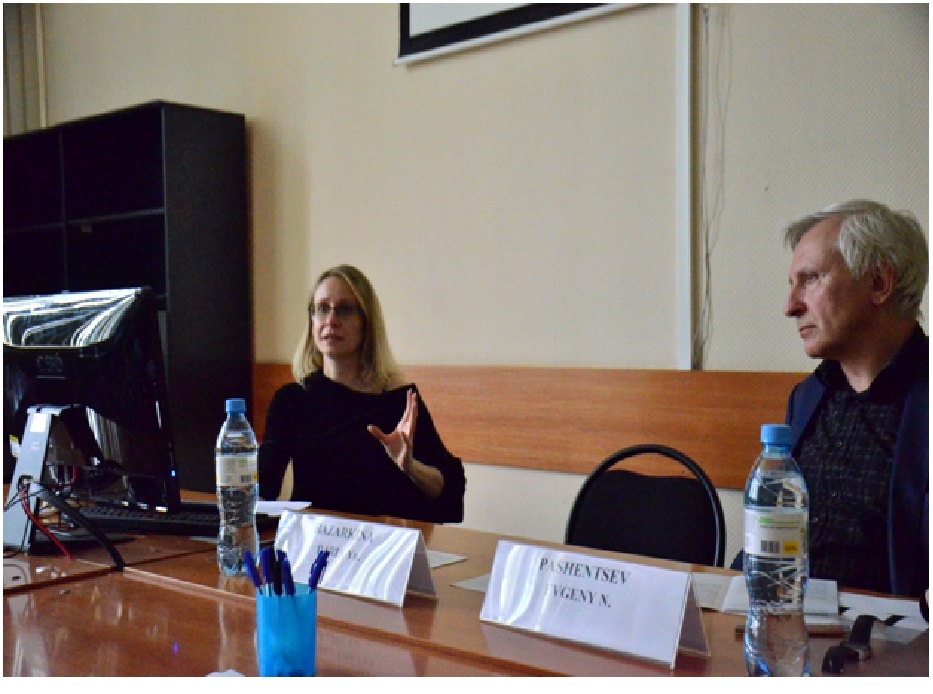
The panel chairs Darya Bazarkina and Evgeny Pashentsev
SESSION ONE
Prof. Darya Bazarkina, DSc, Professor at the Department of the International Security and Foreign Policy of Russia at the Russian Presidential Academy of National Economy and Public Administration, Senior Researcher at the School of International Relations at Saint Petersburg State University opened the first section session with the issue of Communication provision of counter terrorism: theoretical approaches and practical experience. In her presentation, Prof. Darya Bazarkina first presented links between various European institutions and their way of disseminating knowledge and messages to internal and external audiences. Then, the expert analyzed the actions of ISIS as a quasi-state, and its way of strategic communication.
By analyzing the work of institutions combating ISIS propaganda such as Arab StratCom Task Force, the European Commission, the EU Internet Forum, Europol, the EU Internet Referral Unit and the Radicalisation Awareness Network, Prof. Daria Bazarkina stressed that it is a quite new reality where states and interstate organizations have to compete with terrorists in deeds. The speaker highlighted that today’s AI information communication technology can strengthen terrorist propaganda.
Prof. Darya Bazarkina concluded that communication provision of countering terrorism in the EU has its achievements, however, one can also notice that European structures deliberately refuse the centralizing force in this area. At the level of deeds, there is a lack of collaborations as well. That creates controversies at the levels of words and image.
The next speaker was Giuliano Bifolchi, PhD Candidate at the University of Rome Tor Vergata (Italy), who introduced the results of his research on how the Italian media and political parties portray Islam and terrorism.
Guiliano Bifolchi stressed that in Italy the migration crisis has been affecting the society and it is perceived as a serious problem by the Italian citizens. As demonstrated by the statistics, migrants and refugees in Italy are around 6 million people, while the Muslims are only 1,4 million, and a significative part of them is Italian. It has been emphasized that there is not a direct correlation between migrants – Islam – terrorists, however, this combination is a popular trend in politics and media. Particularly, in politics, the right-wing parties are more active and involved in using the combination migrants – Muslims – terrorists on their social network opposing them to the notion of “real Italians” and promoting their agenda against the left-wing parties and the European Union. The left-wing parties have been exploiting migrants and Islam underlining their positive contribution for the Italian society. Islam and migrants are used to contrast the right-wing parties’ propaganda.
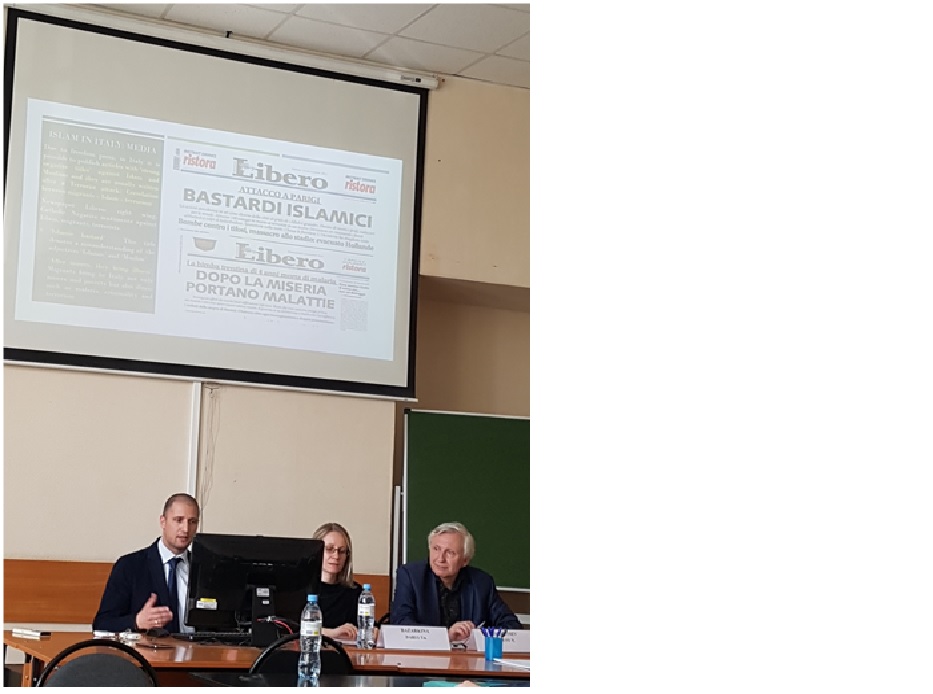
Giuliano Bifolchi while delivering his paper on how the Italian media and political parties portray Islam and terrorism
According to the speaker, another important issue is that fear and hate of Islam and migrants is supported by the concern over terrorism. The Internet and various social networks such as Facebook, have become the battle ground where politicians and citizens discuss this topic using harsh tones and sensational slogans. Consequences of this debate are: Islamophobia, xenophobia, violence against migrants and far right-wing parties’ popularity. Bifolchi argued that through social network politicians and media are creating the conditions for a real clash of civilisations and an antagonism between Italians and Migrants and Christians and Muslims.
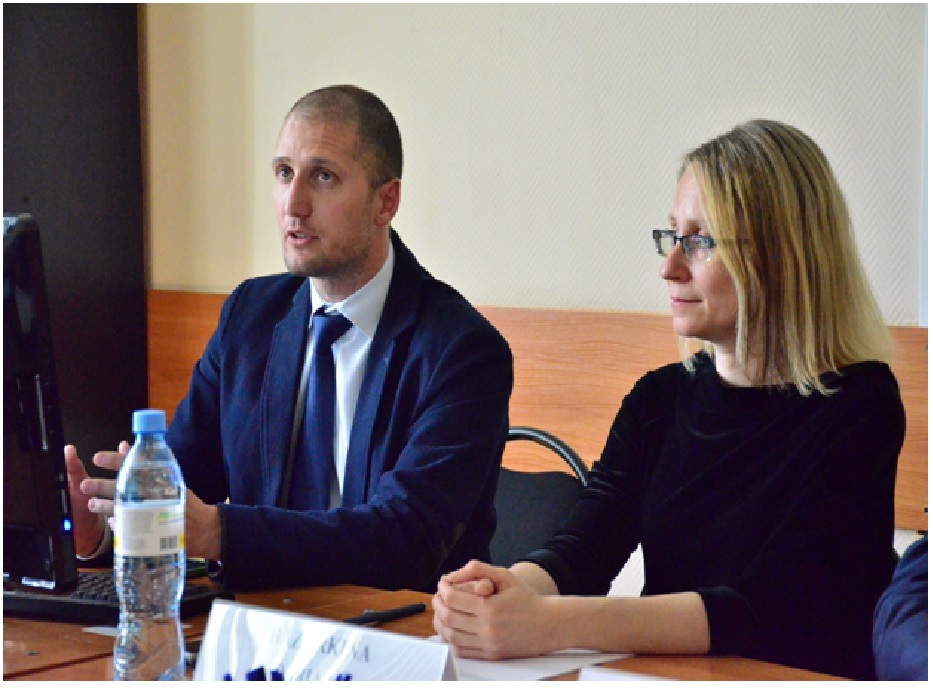
Giuliano Bifolchi and Daria Bazarkina
Anna A., Velikaya, PhD, expert at the Gorchakov Public Diplomacy Foundation in Moscow (Russia) discussed the topic of the US – Iran Track II diplomacy under the Obama administration. At the beginning of her speech, Anna A. Velikaya mentioned data collected and analyzed at Uppsala University. Particularly, in the security field, a University report stated that the growing influence of armed conflicts on civilians is on the top of the present challenges. That is why the young researcher examined tools and methods of so-called Track II diplomacy on the example of the American-Iranian relations. According to the expert, the term of Track II diplomacy is close to such definitions as a low diplomatic channel, soft power etc., and thus, may be considered as strategic communication as well. However, in the post-Soviet space the term experiences a unique situation, and is often called as humanitarian cooperation.
Anna A. Velikaya argued that the time of the first Obama’s administration was fruitful and had a positive dynamic with respect to establishing and developing a dialogue with Iran starting in 2012. The efforts were to recognize at personal and institutional levels on the both sides. It resulted in the “5+1 Deal” and signing the Joint Comprehensive Plan of Action by all members of the group. According to the speaker, much of that credit went to Track II diplomacy, since the diplomats were allowed to step back from the official position, to find out some common points, and to identify the red lines that had not to be crossed. As an example, she mentioned the establishment of “The American-Iranian Council”, which actively promoted negotiations and contributed to stabilization of the dialog. Some other important humanitarian projects were launched, since they were under responsibility of think tanks’ personnel.
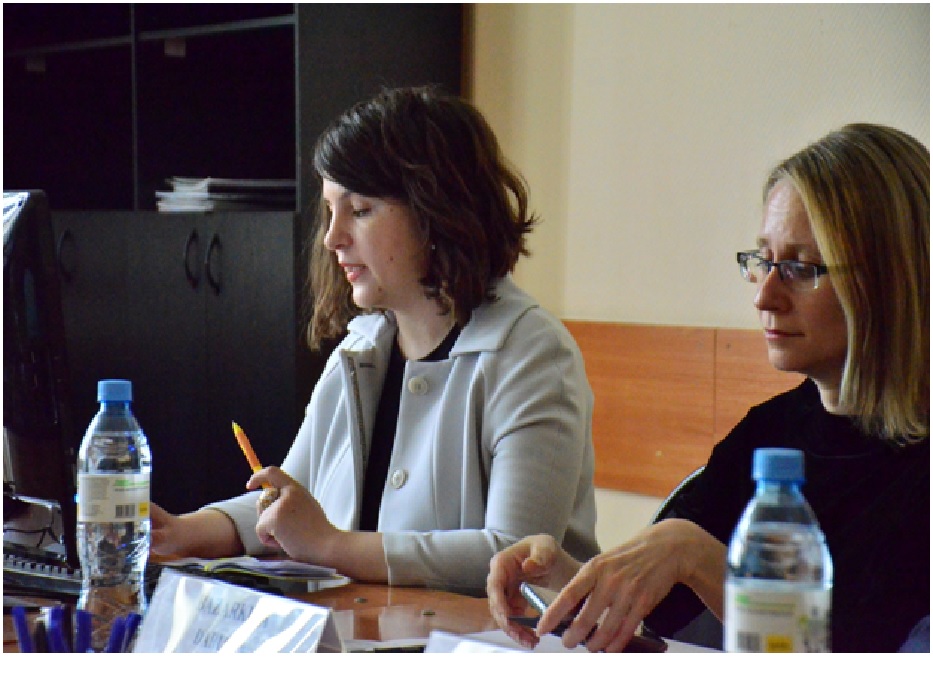
Anna A. Velikaya reports on the US – Iran Track II diplomacy under the Obama administration
After presenting the main positive factors, which contributed to the rapprochement of the American-Iranian dialogue, Anna A. Velikaya posed a question, whether or not the deal was possible merely thank to the Track II diplomacy? The expert responded by explaining that there were negative stereotypes due to controversial positions and different interpretations of the key approach to the terms of sovereignty, responsibility to protect, and humanitarian intervention. The capabilities are also limited due to the personal factor, which is a case of the present Trump administration desiring a regime change in Iran.
Associate Professor at the Institute for Political Studies in Belgrade (Serbia) Marija Djoric, PhD, analysed the matter of strategical communication on the case study of ISIS propaganda in Serbia. Serbia has faced separatist violence caused on the territory of Kosovo and Metohija, and thus has significant experience in fighting terrorism. From the territory of the Republic of Serbia (territory of Kosovo and Metohija excluded), a total of 49 people went to wage wars on the side of jihadists in Syria. Among them are mostly Bosnians, Muslim Roma population, but there is also one case of a Serbian national who converted to Islam and then departed to Syrian battlefield with his family.
During the process of recruitment of members of terrorist organizations, propaganda plays a very significant role. Within the territory of Serbia, ISIS recruited by using direct and indirect radicalization methods. According to Marija Djoric, mostly, radicalization is conducted through direct contact with radical imams or with some close family members or friends. Indirect radicalization is realized through propaganda content that can be found on popular social networks and on online publications such as Rumiyah or Dabiq that are being published in Serbian or Bosnian languages.
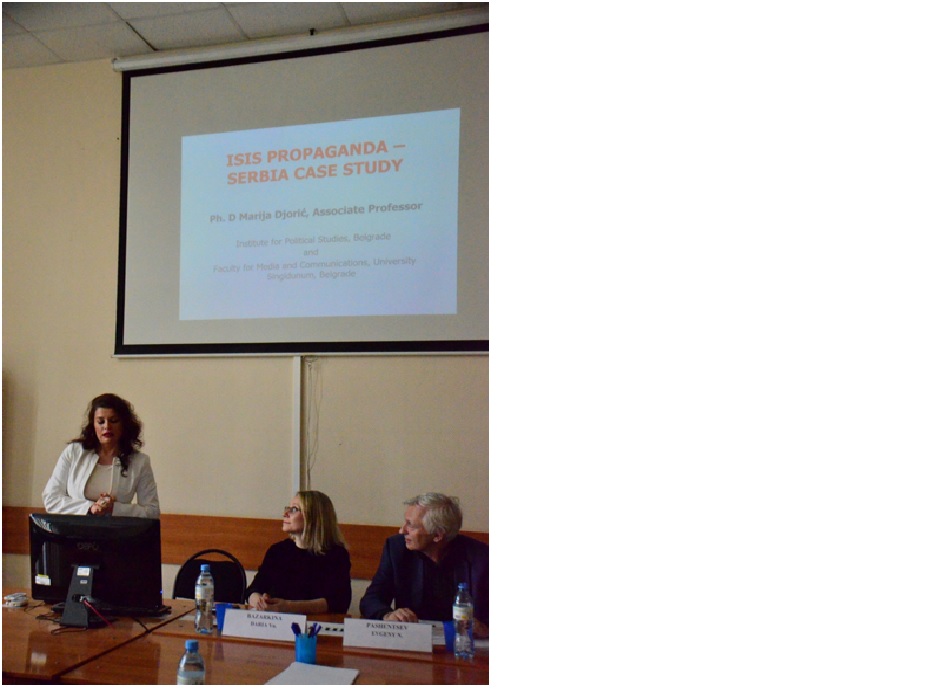
Marija Djoric analyses the matter of strategic communication on the case study of ISIS propaganda in Serbia
The expert stressed that even though conservative in many beliefs when speaking of the value system, the members of the “Islamic State” are definitely following the contemporary trends when speaking of using modern means of communication. They use high-performance propaganda methods on all the fronts: TV, Internet, publishing. However, despite the strong influence of online propaganda, in the case of Serbia, at least when speaking of radicalization that leads to violent extremism and terrorism, it is noted that the most effective propaganda impact was made by individual religious authorities in illegal masjids through teachings and sermons. It might be said that the “Islamic State” did not invent anything new; it only uses the communicational phenomenon of violence that is being known by the name “propaganda by acts” or a phenomenon seen even in the 19th century in the acts of Carlo Pisacane and Mikhail Bakunin.
Then, the speaker discussed the impact of the diaspora. It is also significant, especially when speaking of gypsy population that is indoctrinated with the help of books and brochures arriving from abroad, and which contain messages with terrorist content.
Concluding her speech, Marija Djoric stressed that the biggest obstacle in detecting and preventing online radicalization that can lead towards violent extremism and terrorism are applications with encrypted communication such as Telegram. They are hardly traced and are often used in ISIS propaganda. In this context, the most vulnerable group and potential victims of terrorist propaganda are young and illiterate people, the former group is easily manipulated due to identity crisis which is typical for youth, while the group of illiterate and often poor people is usually manipulated by the stories of “better and more just” life.
The moderator of the section, Prof. Evgeny Pashentsev, Leading Research Fellow at the Institute of Contemporary Problems of the Diplomatic Academy at the Russian Ministry of Foreign Affairs, Senior Research Fellow at the School of International Relations at the Saint Petersburg State University Director of the International Centre for Social and Political Studies and Consulting, covered the topic of “The malicious use of an artificial intelligence: the new dimension for a psychological warfare.” The professor started his presentation with the caution of tremendous changes in the information technologies field that led to appearance of new mechanisms for manipulating peoples’ perception of reality as well as their consciousness in general. Psychological warfare based on artificial intelligence (AI) objectively threatens the states on the new level of development. Prof. Evgeny Pashentsev gave some concrete examples on the issue. Different studies indicate that bots made up over 50 percent of all online traffic in the developed countries and thus can be an efficient tool of amplification and agenda setting. Deepfakes, which are artificial intelligence algorithms that create convincing fake images, audio and video. For example the deep fake of Prime Minister Benjamin Netanyahu or other government officials talking about impending plans to take over Jerusalem’s Temple Mount and Al-Aqsa Mosque could spread like wildfire in the Middle East. Since 2018, deep learning algorithms have been working with portraits of non-existent people (‘Fake people’). AI-driven Predictive analytics can be used as a prognostic weapon, etc. One can imagine that, based on a system combination of techniques of psychological impact, complex AI systems and Big Data is possible to create a synthetic reality for different target groups in much efficient way that could not happened ever before through traditional tools of propaganda.
The expert stressed that mankind is entering a new reality to organize terrorist and criminal attacks, kompromat etc. One should not have illusion that the growing investment in AI will threaten to the international security and stability. At the same time, however, the professor also mentioned that AI also opens doors to fast and positive transformation of our society.
Concluding his speech, Prof. Evgeny Pashentsev drew attention to the fact that the topic of enormous relevance for further research. At the present moment, there are a lot of international events and conferences over the world, where the challenges of AI are controversially discussed.
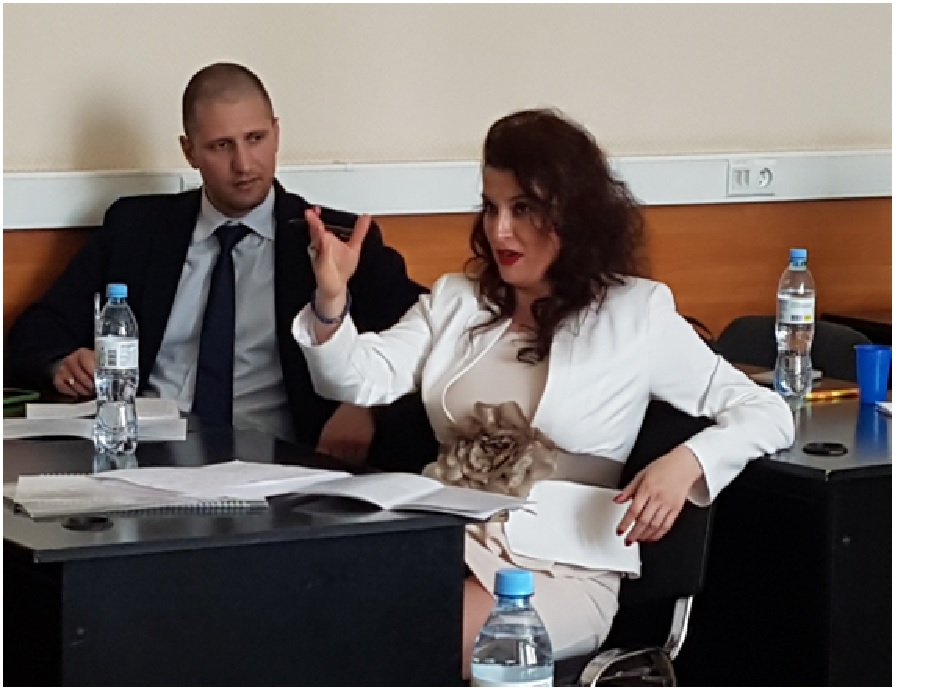
The participants of the sections Giuliano Bifolchi and Marija Djoric
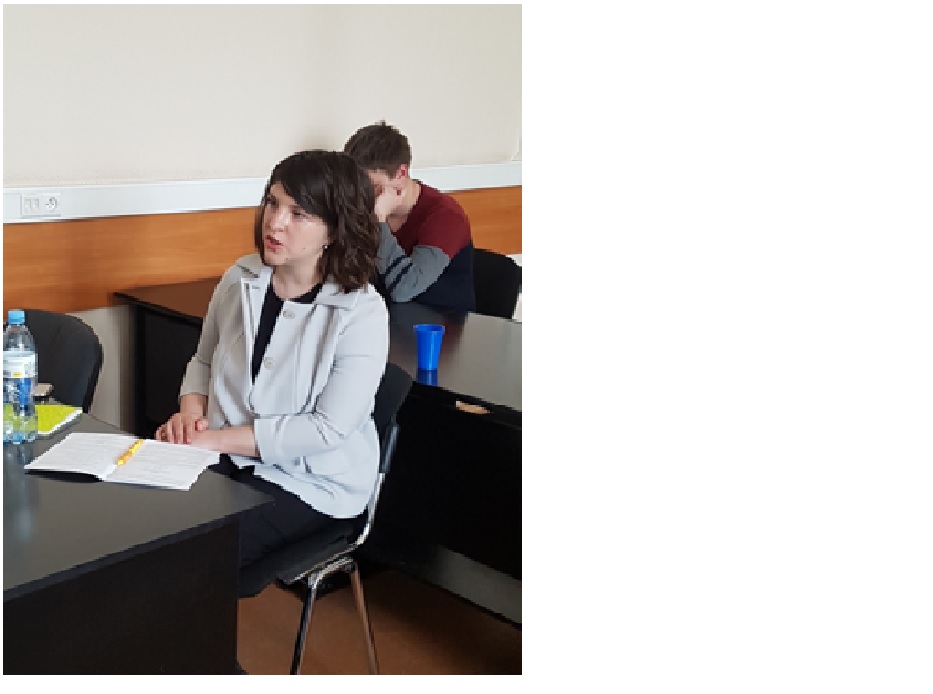
Anna A. Velikaya
Session Two
Dmitry Fatykhov, specialist at the Public Affairs and Communications Office of the President of the Russian Federation, made a presentation on Strategic communications in the EU. The speaker considered the conceptual framework and theoretical approaches to the concept of strategic communication, as well as analyzed their applicability in the information support for the foreign policy activities of states and integration blocs on the example of the development of common information policies of the European Union.
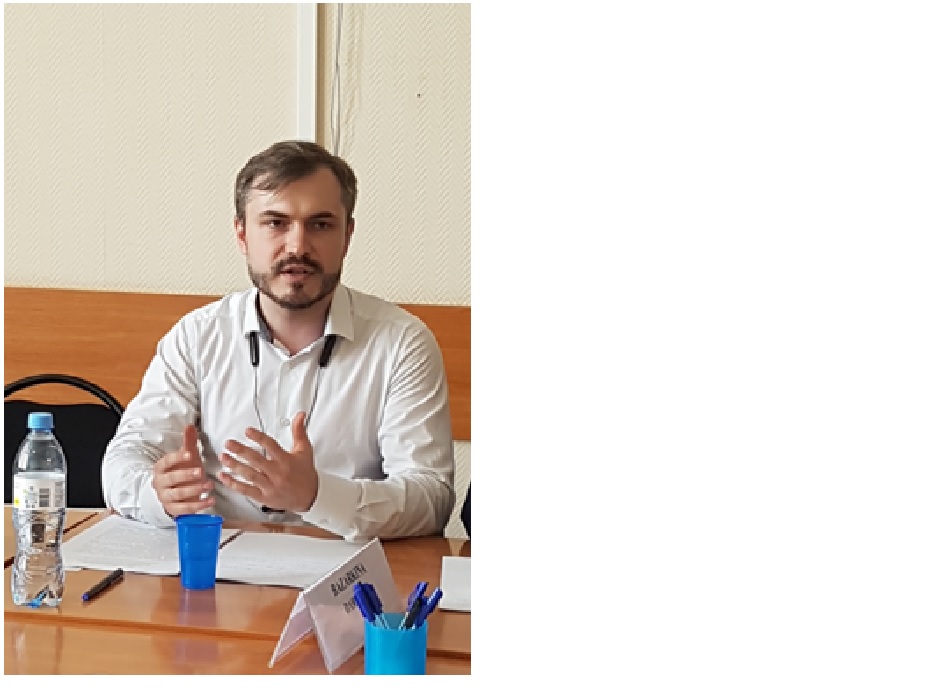
Dmitry Fatykhov makes a presentation on strategic communications in the EU
In particularly, Dmitry Fatykhov focused the attention on the intensification of information work by the European Foreign Policy Service. Then, he discussed the increase in funding for the strategic communication group “Vostok”, established in 2015, and highlighted the criticism towards the it due to its narrow mandate to withstand the Russian propaganda. The speaker stressed that a gradual expansion of staff didn’t improve its work significantly. The overall impact hasn’t met the expectations to limit the Russian propaganda Thus, it is still on the debate on academic and political levels, whether or not the Task force is effective.
According to Dmitry Fatykhov, developing a comprehensive information strategy needs not only money and administrative staff. Significant media outreach by the European governments and other European structures is essential to convince the audience abroad.
Then, based on the previous analysis, the speaker tried to formulate recommendations on the modification of the existing system of information support for Russian foreign policy. First and foremost, there is a necessity of a new institutional design of the relevant services in the country. There is no coordination, and effectiveness is limited for this reason. Institutionalization of separate bodies could make the similar projects in Russia more effective. However, there are also significant challenges in increasing the national media presence abroad, even in the CIS countries. There are also a lot of restricted legislations that have been adopted in the recent years in the Middle East that diminish the Russian media influences there. Political restrictions in Europe are obvious as well. The speaker gave examples of increased pressure on the Russian channel “RT”” and “Sputnik”. Concluding his speech, Dmitry Fatykhov argued that these restrictions are impossible to bypass by traditional means.
Erik Vlaemnick, a PhD candidate at the University of Edinburgh, (Scotland) presented a report on the matter of Sino-Russian strategic communications in unstable times, and analyzed what these can explain about the current world order. After delivering a profound historical analysis on the bilateral relations between Russia and China, the young researcher discussed the dynamic of Sino-Russian relations through the lens of strategic communication. Erik Vlaemnick highlighted that the contemporary global power shifts are, among other factors, due to the growing Russian-Sino relations in the international arena. Both Russia and China, in today’s unstable times, deploy an innovative model of strategic communication to balance their proper strategic relations, as well as to communicate their emerging power ambitions on a regional as well as on a global scale.
At the same time, the speaker reminded the audience of the huge disproportions in the countries’ economies that determine the scope of their influence in the world. Recognizing the importance of the cultural factor for conducting foreign policy, Erik Vlaemnick stressed an interesting fact that in various “soft power”-rankings China and Russia are closely positioned. Then, the speaker introduced various examples of synchronized actions undertaken by the Russian and Chinese leaders, for instance, a granting of medals to each other at various international political forums and events. In this context, the researcher argued that the leaders’ friendship carries the underlying message that an alliance between the two countries is always possible, a message particularly directed to the West. It is also a means to reinforce their own power position, and follows the logic of strategic communication as purposeful communication, which has a goal to influence the international stage and promote the notion of multipolarity.
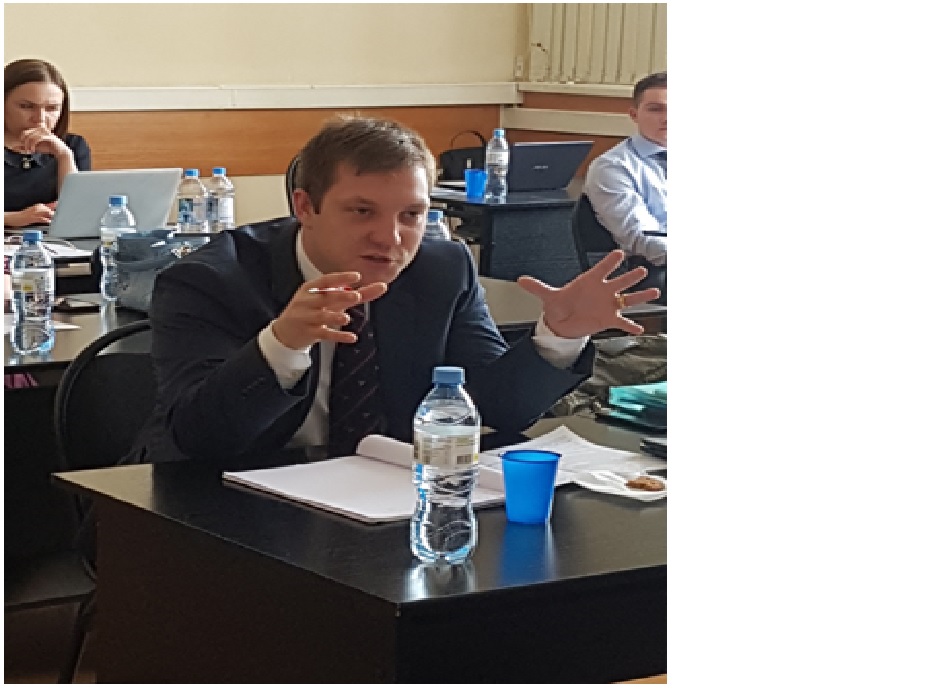
Erik Vlaemnick introduces his topic on the Sino-Russian strategic communication
However, the speaker highlighted that it would be naive to consider the Russian-Sino strategic communication as a merely positive and effective mechanism, and that the future rise of China will demonstrate, whether or not it is sustainable.
Olga Polunina, PhD, Associate Professor at the Department of Communication Management of the Russian State Social University in Moscow continued the panel with the topic dedicated to Latin America under the conditions of the controlled chaos.
In her speech, Olga Polunina outlined some potential problems from the point of strategic communication.
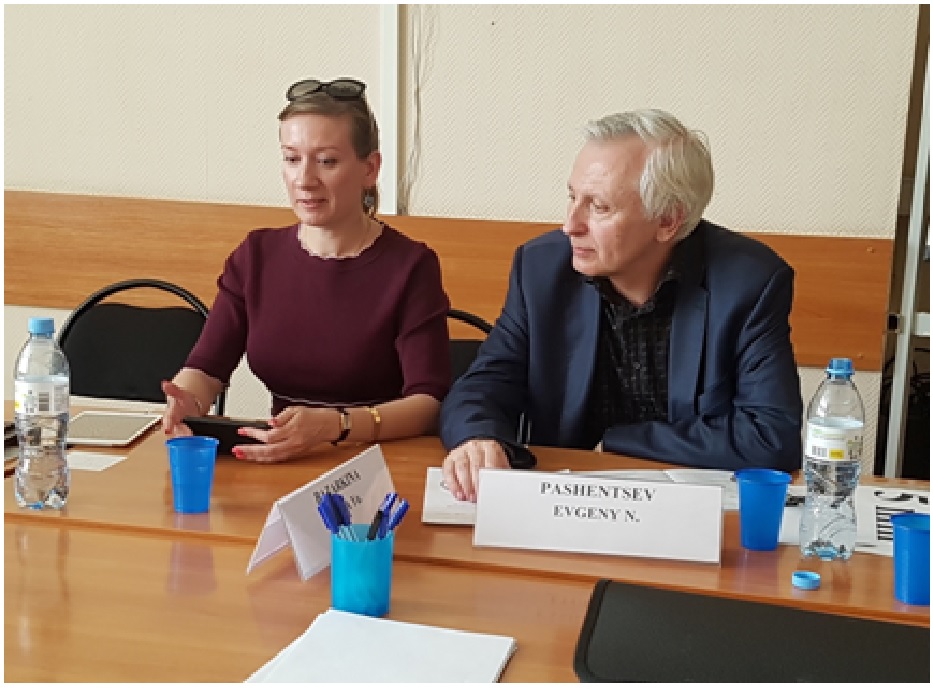
Olga Polunina discusses Latin America under the conditions of the controlled chaos
Firstly, Latin America is a region of contrasts in the sphere of developing and implementing new technologies. The region represents a huge business area for local communication and advertising agencies to work with international brands helping them to keep their communications in tune with the local peculiarities. In this regard, a people-centric approach may provide the best opportunity to make the most of the coming digital revolution in the region. Nowadays, there are too few companies in Latin America that are going digital-first, but those that do are great examples of the region’s potential. For example, Brazilian digital bank Banco Original is the first in the world that allows customers to open accounts entirely online. Nubank, a Brazilian company with an online credit card offering, has caught the attention of Silicon Valley investors. Argentinean digital bank Galicia Move targets university students and has attracted over 35,000 clients in only one year of operation.
Secondly, to compete in the digital economy, Latin America needs a workforce that is trained in essential and emerging networking skills, as well as non-technical skills like proficiency in English, team work, problem solving, creativity and innovation, and communication.
Thirdly, a serious problem lies in the economic sphere. Quite a number of the countries in the region are in the condition of economic collapse. In this context, one optimistic idea that may help is utilizing of artificial intelligence (AI). It can be seen as a new factor of production that can help address future labour shortages and a chronic productivity deficit in Latin America.
According to the speaker, AI will generate a swathe of new jobs and demand new skills in areas like robotics. However, it is also true that AI will eliminate other jobs, potentially worsen inequality and erode incomes for some parts of the population. In this regard, the imperative is for policymakers to proactively address and pre-empt the downsides of AI. For example, they must identify the groups that are at risk of being affected disproportionately by job displacement and create strategies that focus on reintegrating them into the AI-driven economy. It also demands carefully crafting rules and regulations.
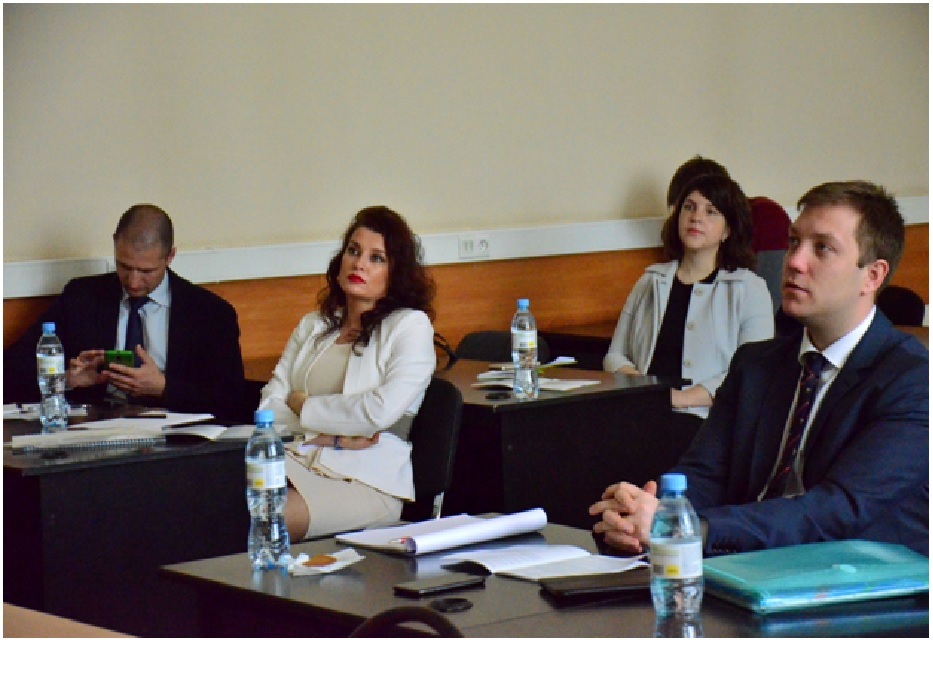
The section’s members following a presentation
The next participant was Dey Saswati, M.A. in Geography, First Secretary at the Embassy of India in Moscow, which examined the topic of Mass media and strategic communication in international relations on the example of the Indian election. According to the diplomat, the use of electronic voting machines, which are criticized by the opposition parties for working not well, is exactly an evidence that a new form of communication has generated and become successful for the world system.
Since the platforms of global media based in the USA or Europe, Dey Saswati stressed that it allows the Indian people abroad to follow the elections. However, it is very difficult to construct a communication model for all those people in foreign countries, and to convince them to a particular idea in this way.
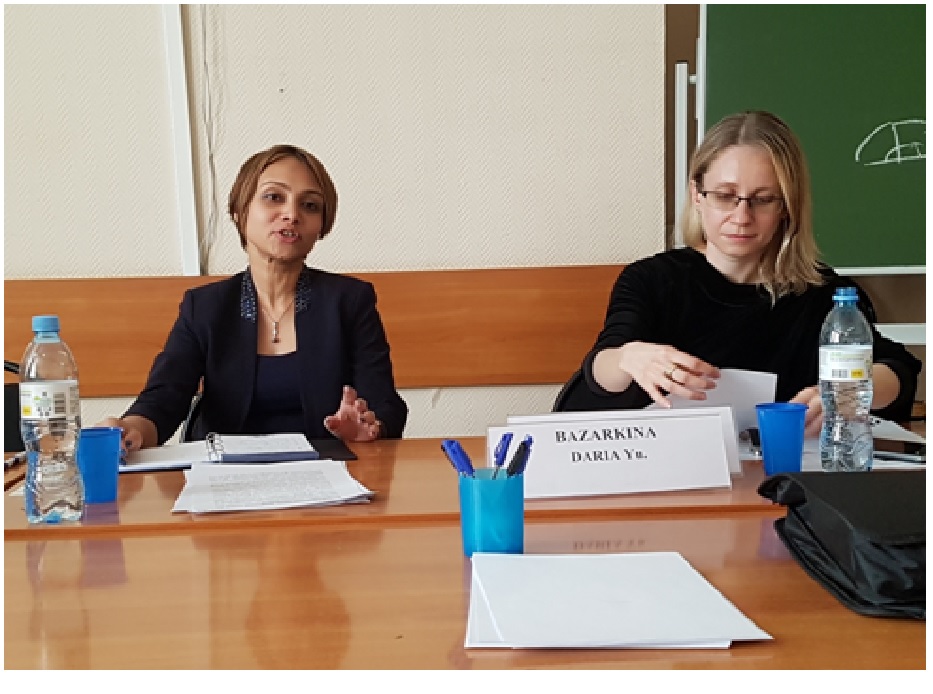
The Indian diplomat Dey Saswati reporting on the topic of Mass media and strategic communication in international relations on the example of her country
Talking about strategic communication at the national level, Dey Saswati drew the attention to the fact that India is a rural country. That is why Prime Minister quite frequently gives talk show not only on TV, but also on the Radio, since it is widely used in her country. According to the speaker, this simple and communicative strategy, which definitively makes an impact on the Indian population. The other aspect of national communication strategy Dey Saswati explained on the proper use of Twitter by the Ministry of Foreign Affairs. In Saswati’s point of view, the use of Twitter increases the faith of the people in the Indian government. It established credibility in the society, concluded the diplomat.
The issue of Private sector initiatives to counter terrorist propaganda on the internet was clarified in the paper of Oleg Shakirov, Consultant at the PIR-Center in Moscow (Russia). At the beginning of his speech, Oleg Shakirov reminded of the important fact that along with the national government, private tech-companies provide platforms for information to be shared online as well. They play an important role in countering the spread of terrorism. But are they independent players? According to the specialist, if one takes a look on activities that private companies undertake, so they follow the similar patters as the traditional actors of the international relations do.
One of the examples of the positive capabilities of private tech-companies, is a UN led process called “Tech Against Terrorism”. In the framework of the process there have been made a number of resolutions to invite private tech-companies to contribute to the fight of the terrorism. As a result, a global Internet forum to counter terrorism appeared in 2017. The founders are four big tech-companies: Facebook, Microsoft, Twitter and YouTube. The most prominent project of the Forum is so-called library of terrorists’ fingerprints, collected by these world companies. However, the problem is that the project is made by the companies themselves, so there is no external audience, or there is no way to verify, whether they do they work properly or not.
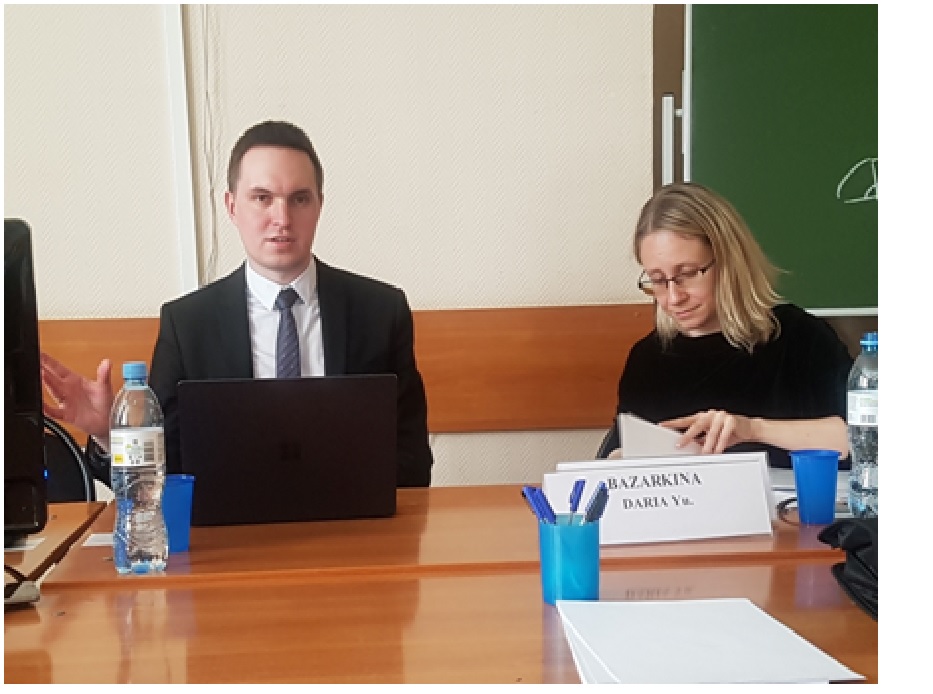
Oleg Shakirov introduces his reports on the issue of private sector initiatives to counter terrorist propaganda on the internet
Next successful example represents the work of the Russian service Telegram. It has become a big platform for terrorists, once they were pushed out of Twitter. Since Telegram didn’t want to cooperate with the Russian government too closely, it developed its own initiative called “Telegram – ISIS Watch”, which basically blocks various public channels broadcasting the ISIS or more broadly terrorist propaganda. The service announces on monthly and daily basis a number of blocked terrorists accounts.
Another effective method was created by Google. It uses ad-words technology: the service may identify accounts and profiles which are searching for terrorist-related words.
To sum up, Oleg Shakirov pointed out problems that exist in the area. Firstly, the terrorists may switch from one social media platform to another quite simple. Secondly, the rivalry and confrontation between states undermines the trust in social media. Thirdly, private tech-company are not transparent enough for sharing their information publicly.
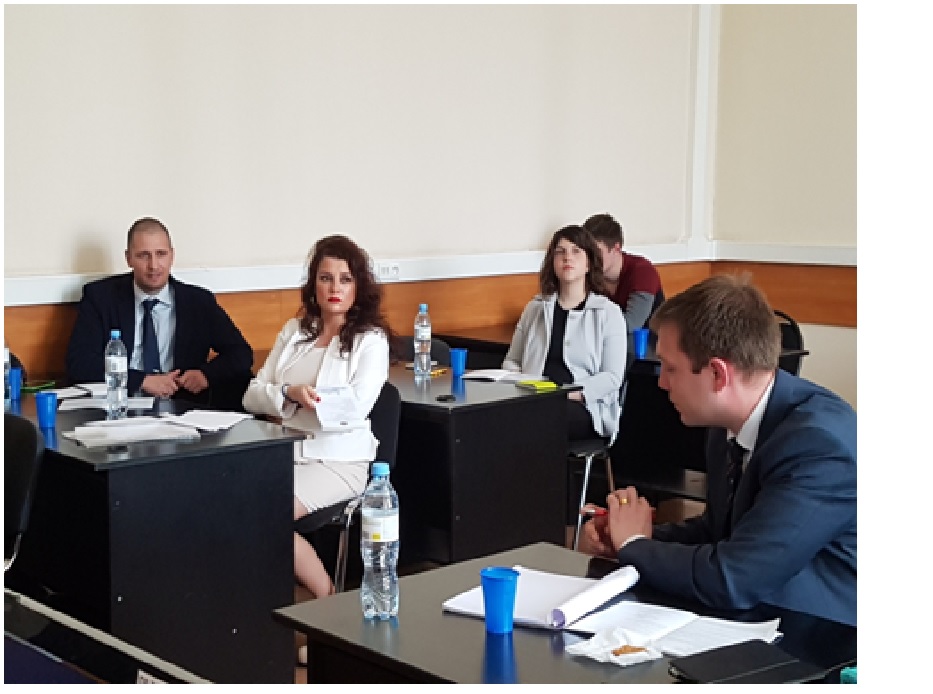
The participants of the section while formal debates
The last presentation of the section was delivered by Marius Vacarelu, PhD, Lecturer at the National School of Political and Administrative Studies in Bucharest (Romania). The speaker analyzed the role of Diasporas in international relations and national elections. Regardless of the fact that the reasons for moving into foreign country are different, the contribution of diasporas to local or national communities is immense. In this context, the speaker highlighted the positive aspects of diasporas both in their home country and abroad. According to Marius Vacarelu, the issue cannot be ignored in the framework of strategic communication due to the role of diasporas in political and social processes. Since in the EU the citizens have a right to vote not only in their home country, the speaker stated that at the political level, diasporas may influence the outcome of election. Diasporas may create even a new kind of elite in foreign country. Their members conduct the policy of their states abroad. It general, it may be considered as a transfer of good governance idea into foreign countries.
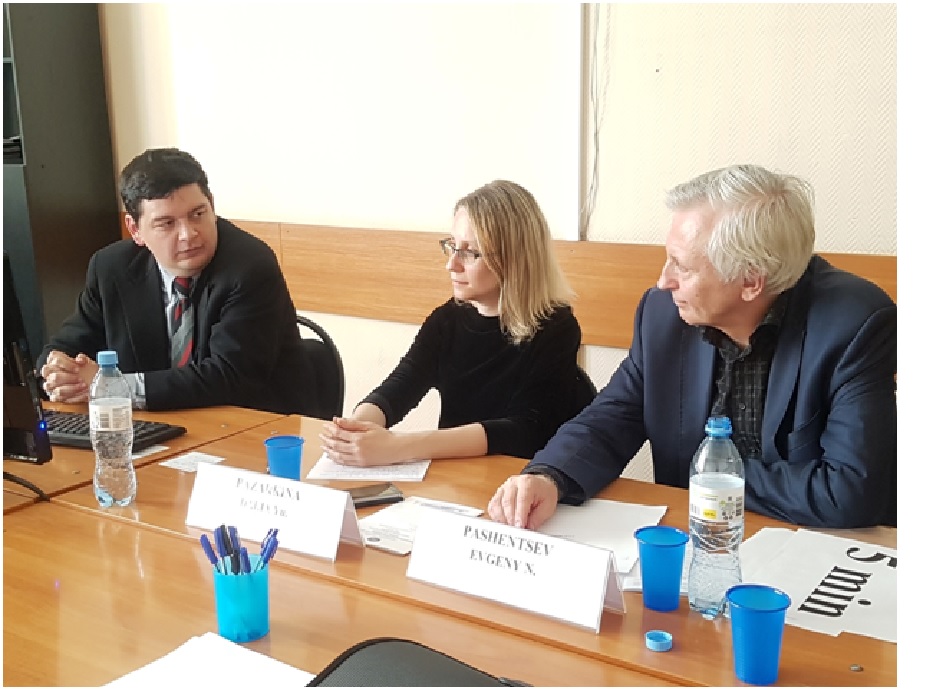
Marius Vacarelu analyzes the role of diasporas in international relations and national elections
Answering to the questions of his presentation’s title, and namely “What remain, what to change?”, Marius Vacarelu concluded that diasporas are becoming a newly actor in international relations, which is able to influence the globalization process.
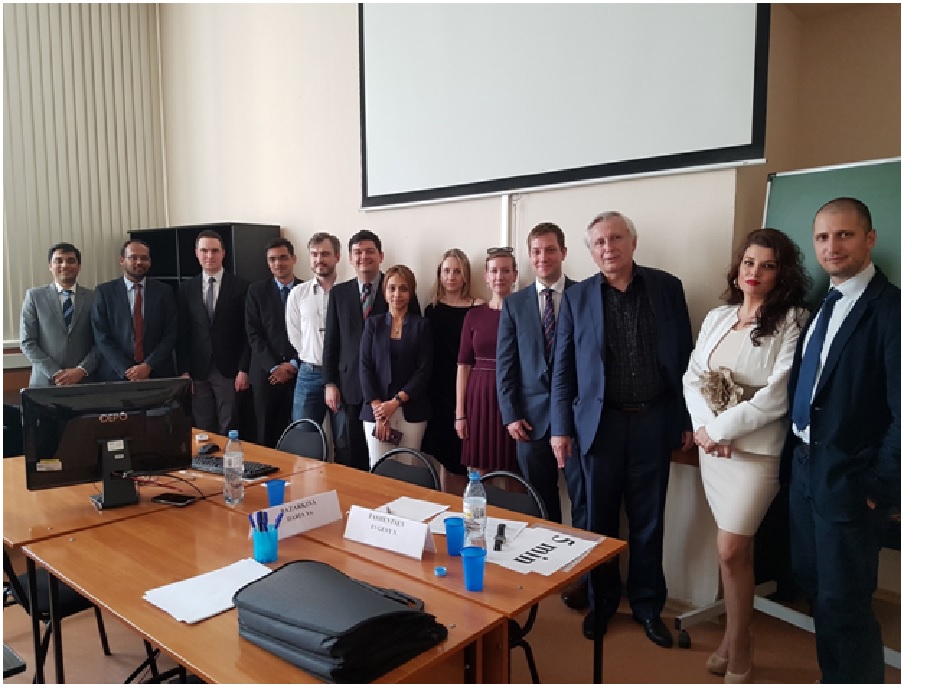
The chairs, participants, and quests of the section “Strategic communication and media” at the international conference at the Diplomatic Academy of the Foreign Ministry Affairs
The latest developments in the sphere of technology and information dissemination marking the 21st century have resulted in a renewed focus on communication strategies in international affairs. The malicious use of strategic communication, propaganda and manipulation are increasingly viewed as a threat to international security, a process which risks to aggravate with the rise of robotics, AI, and other smart technologies. The panel on strategic communications and media engaged with a variety of issues relevant to this dangerous situation ranging from propaganda and manipulation through media to the potential dangers coming from new technologies such as deep fakes. In addition, the panel demonstrated the use of strategic communications in a variety of processes such as bilateral relations and elections as well as its positive outcomes.
As it has been seen in the framework of the panel, the topic draws attention of practitioners, experts, academia and young researches, who deal with the matter of strategic communication at different dimensions. What does it mean to the future of global security? The question cannot be answered as easily as one might think, since the coin has two sides. Technologies are in constant progress. Social and political tensions will not disappear, likely they will sharpen even more than now. The interdependence and complexity of the international actors make not only statesman responsible for the sustainable life. Nowadays, each person bears responsibility for global security and safety. We all are to utilize methods and tools of strategic communication effectively and wisely.
During the round table, the presentation of the new collective monograph was also held. The book Understanding the War on Terror: Perspectives, Challenges and Issues edited by Riku Flanagan was published this April in Nova Science Publishers. Two of the round table contributors, Evgeny Pashentsev and Darya Bazarkina, took part in this publication.
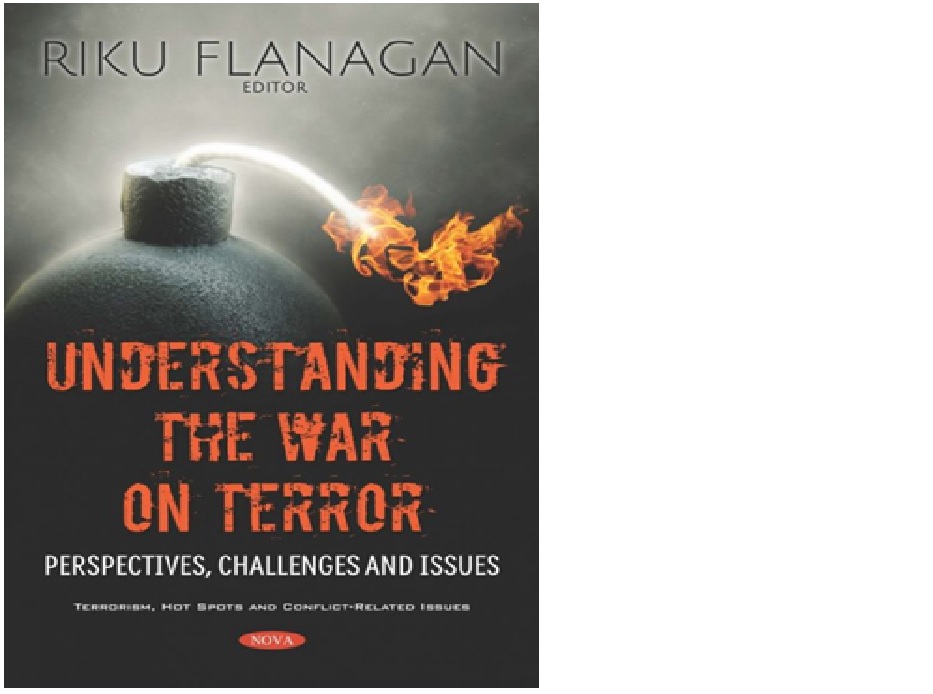
Anna Velikaya and Greg Simons informed about a book edited by them and soon to be published by Palgrave Macmillan Russia’s Public Diplomacy. Evolution and Practice. Russian public diplomacy attracts growing attention in the current global climate of tension and competition. However, it is often not understood or is misunderstood. Although some articles and book chapters exist, there are almost no books on Russian public diplomacy neither in Russian, nor in English. This edited collection is an in-depth and broad analysis of Russian public diplomacy in its conceptual understanding and its pragmatic aims and practice. Various aspects of Russian public diplomacy – from cultural to business practices – will interest professors, students and practitioners from various countries.
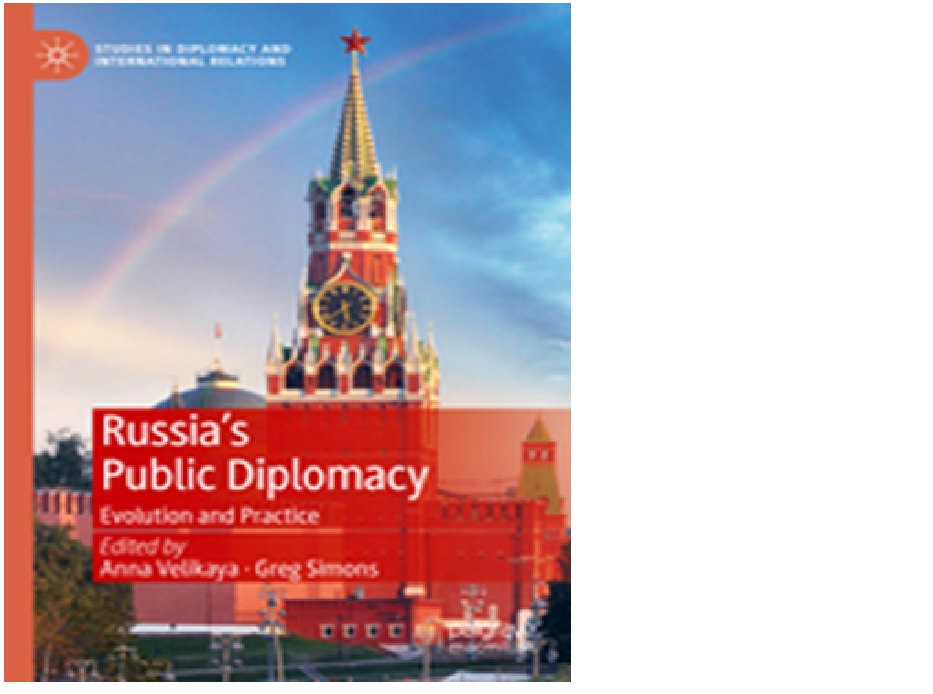
In 2019-2020 with active participation of the members of GlobalStratCom strategic studies associations three more volumes prepared by international teams from 19 countries will be published: Strategic Communication in EU-Russia Relations: Tensions, Challenges and Opportunities (ed. by Evgeny PASHENTSEV), Terrorism and Advanced Technologies in Psychological Warfare: New Risks, New Opportunities to Counter the Terrorist Threat (ed. by Darya BAZARKINA, Evgeny PASHENTSEV and Greg SIMONS), Artificial Intelligence and International Psychological Security (ed. by Evgeny PASHENTSEV).
See photos more: https://www.dropbox.com/sh/2fs4gsgyrws4efm/AACl9fZRVE9LuidDF2wD8CvZa?dl=0



 0
0 13280 Views
13280 Views 5 May 2019
5 May 2019 Marina Murashko (Diplomatic Academy , Moscow) , Jibeck Nurshaihova (Diplomatic Academy , Moscow)
Marina Murashko (Diplomatic Academy , Moscow) , Jibeck Nurshaihova (Diplomatic Academy , Moscow)